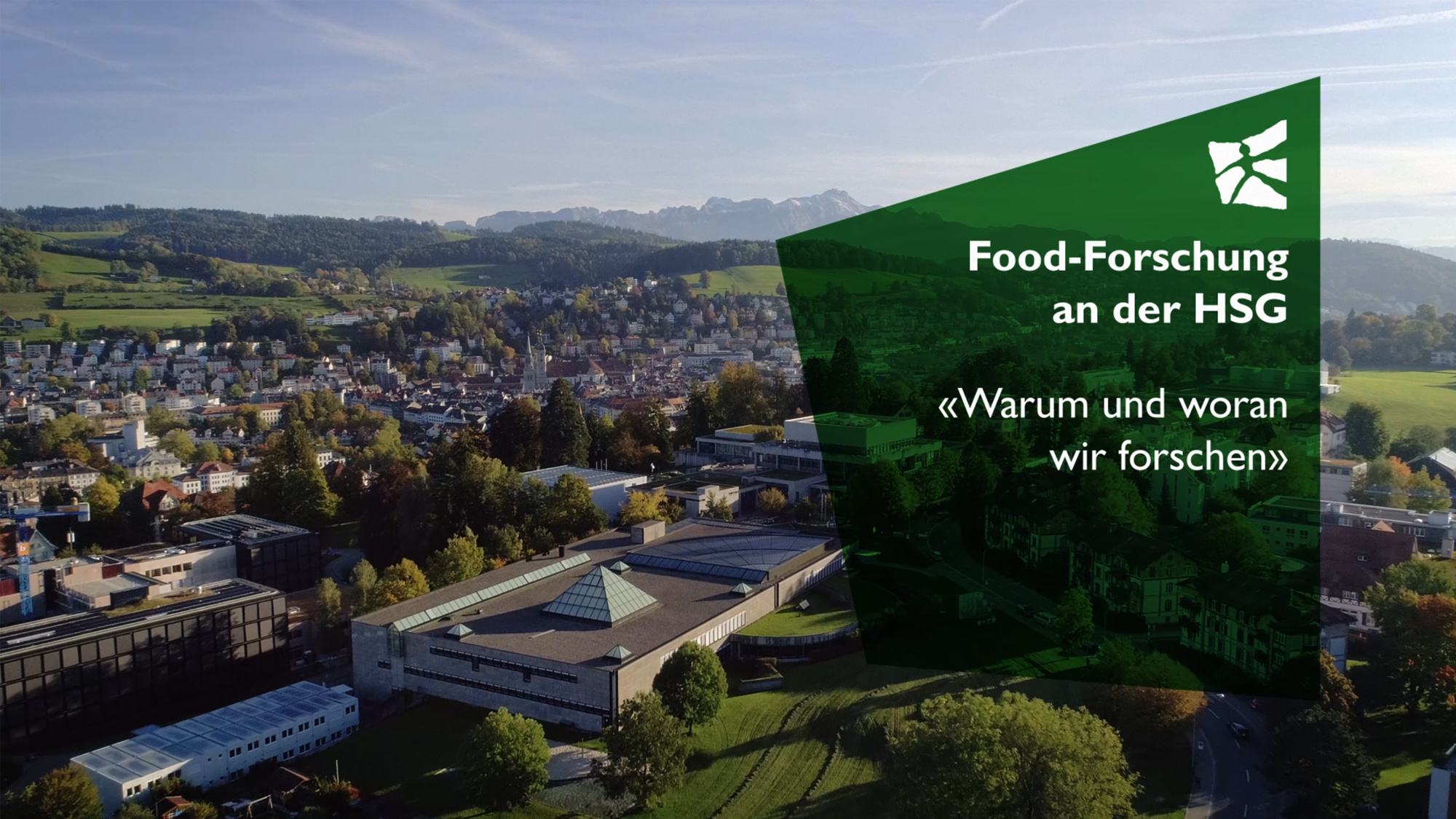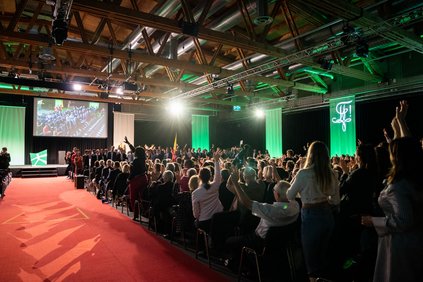Campus - 21.01.2021 - 00:00
The HSG wants to reinforce its impact-oriented top-class research
The 2021 annual media conference of the University of St.Gallen (HSG) focused on Research & Faculty. The HSG would like to distinctly reinforce the area of top-class research in the course of the coming years while at the same time increasing the international connectivity of its research. To this end, it will not least have to attract and retain top-notch international researchers. Among other things, these efforts have enabled the University of St.Gallen to increase the proportion of women to an appreciable extent since 2017.

21 January 2021. In his address, Prof. Dr. Thomas Zellweger, Vice-President for Research & Faculty, first reviewed trends and challenges in the international research landscape. Today, he said, research was subject to growing methodological and ethical requirements while at the same time, research was predominantly taking its bearings from the requirements and interests of the international academic community rather than from immediate practical issues. “This gives rise to the danger of an alienation of science and practice,” said Zellweger.
The HSG’s 2025 research strategy aims to further reinforce impact-oriented top-class research. According to Vice-President Zellweger, the University of St.Gallen intends to achieve this by creating additional incentives for impact-oriented international top-class research by improving the international connectivity of HSG research through an increased orientation towards the Swiss National Science Foundation and the EU, by prioritising start-up and success premiums as opposed to the promotion of projects and people, and by enabling the institutes to generate yields through top-class research, too.
According to Professor Thomas Zellweger, examples of impact-oriented research included three research projects which received the HSG Impact Award in 2020, as well as the Global Trade Alert, which had been observing global trade and economic policies for years and was regularly employed as a reference even by the World Trade Organization. In addition, the information about Research & Faculty was part of a three-part video clip which shed light on HSG research programmes about foodstuffs from an interdisciplinary perspective.

"Why and what we research"

"Food Consumption in the 21st Century"

"Nutrition in the digital age"
The proportion of women in the faculty is on the increase
PD Dr. Monika Kurath, Dean of Research & Faculty, focused her address on the academic personnel of the University of St.Gallen, i.e. the faculty. What does the HSG expect from assistant, associated and full professors? “Top-level performance in research, teaching, self-administration and extramural impact, as well as leadership competencies,” said Monika Kurath. Most recently, she said, the HSG had increased its efforts to attract and retain top international researchers and teachers. The University of St.Gallen is also well on track to achieve its gender equality target of 30 per cent of assistant, associate and full professors by 2025. Since 2017, the proportion of women among new appointments had been 40 per cent across all three levels.
At the same time, the HSG was progressing with the development of its Ph.D. programmes, said Monika Kurath. Today, a majority of Ph.D. graduates left the University in the direction of practice. In future, HSG Doctor’s degrees should also increasingly prepare graduates for an academic career. Doctoral students should be supervised more intensively, and a focus should be placed on excellence in research, for instance by means of joint publications with their supervisors in leading academic journals.
“Top IT research from St.Gallen”
In his introductory address Stefan Kölliker, Minister of Education of the Canton of St.Gallen and Chairman of the University’s Board of Governors, referred to some milestones from last year. Thus the HSG was able to inaugurate its new School of Computer Science (SCS-HSG) in September 2020 – the first concrete result of the cantonal education offensive. The SCS-HSG will educate the first graduate students from autumn 2021 and the first undergraduates from autumn 2022. “I hope that the School of Computer Science will not only provide top international IT research from St.Gallen but also stimuli in a lively exchange with the regional economy,” said Minister of Education Kölliker. He also expressly mentioned the first medical students who have been studying in St.Gallen since autumn 2020 thanks to intercantonal cooperation.
Stefan Kölliker also mentioned the revision of the University Act, which was launched in 2018 and should come to a conclusion in 2022. “I feel optimistic that the future University Act will be a good result of our current work and will also be widely approved in the political process running up to its entry into force,” said the minister. “What we want for the Canton of St.Gallen, our economy and our society is an HSG that is successful in the long term. Stefan Kölliker extended his thanks to the President’s Board led by Prof. Dr. Bernhard Ehrenzeller for their very good cooperation during the past twelve months, and praised St.Gallen’s institutions of tertiary education for their quick and flexible actions with regard to the challenging handling of the consequences of the Covid-19 pandemic.
“Fit for the future with creative leeway”
Prof. Dr. Bernhard Ehrenzeller, President of the University of St.Gallen, also referred to the revision of the University Act in his address. The HSG’s fitness for the future would have to be the focal point in this respect, he said. “We’re aware of our own responsibility towards the Canton as a public university,” continued Bernhard Ehrenzeller. “At the same time, we’re confident that we’ll be able to preserve the necessary creative leeway to ensure that we’ll also be acknowledged as a leading business university in the future.”
President Ehrenzeller also mentioned the new medical students at the HSG, as well as the School of Computer Science, which was set up last year and with which the University of St.Gallen was advancing into new fields outside its familiar humanities and social sciences and thus simultaneously exploiting new opportunities to make an even greater contribution to the region.
Looking back on the past twelve months, Bernhard Ehrenzeller said that the pandemic had provided the HSG with a new impetus, particularly in teaching. It had propelled the University out of its comfort zone and compelled it to conduct a variety of experiments. “This thrust and experimental zest will have to be maintained and put to further use later, particularly in the Learning Center. The HSG Learning Center will celebrate its topping-out ceremony in spring 2021 and will be opened in the first quarter of 2022. “The Learning Center will place co-creation and participative teaching and learning formats centre stage and also have an impact on executive education,” said President Ehrenzeller.
More articles from the same category
Discover our special topics











